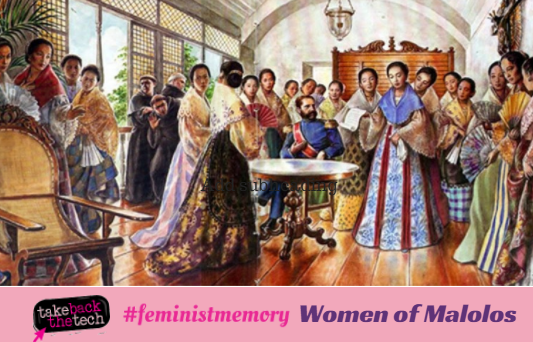
Foundation for Media Alternatives (Philippines)
#FeministMovement in the country: THE WOMEN OF MALOLOS
They petitioned the Governor-General Valeriano Weyler to allow them to open a night school where they can study the Spanish language. The women desired to learn the Spanish because it was the language of politics and society. It was a daring action during that time because it defied the authority of the town's friar. The Philippines, during this period, was a colony of Spain.
As expected, the request was turned down because the parish priest was against it. Although disheartened, the women continued to lobby for the school, traveling between Malolos and Manila to convince the governor-general to allow their request. Finally in February 1889, the women were allowed to open their school, on conditions that the women would finance their schooling, and that classes will be held in the daytime.
The school operated only for three months because of pressure from the authorities.
On February 17, 1889, Jose Rizal, who would later be declared the country's national hero, wrote from Barcelona, Spain a letter commending the bravery of the women. The text of the letter is available at http://kwentongebabuhayrizal.blogspot.com/2013/07/to-young-women-of-mal…
Article Posted here:
Image from Goto de Leche website (http://gotadeleche.com/wp-content/uploads/2014/03/malolos.jpg.)
Goto de Leche
1888
